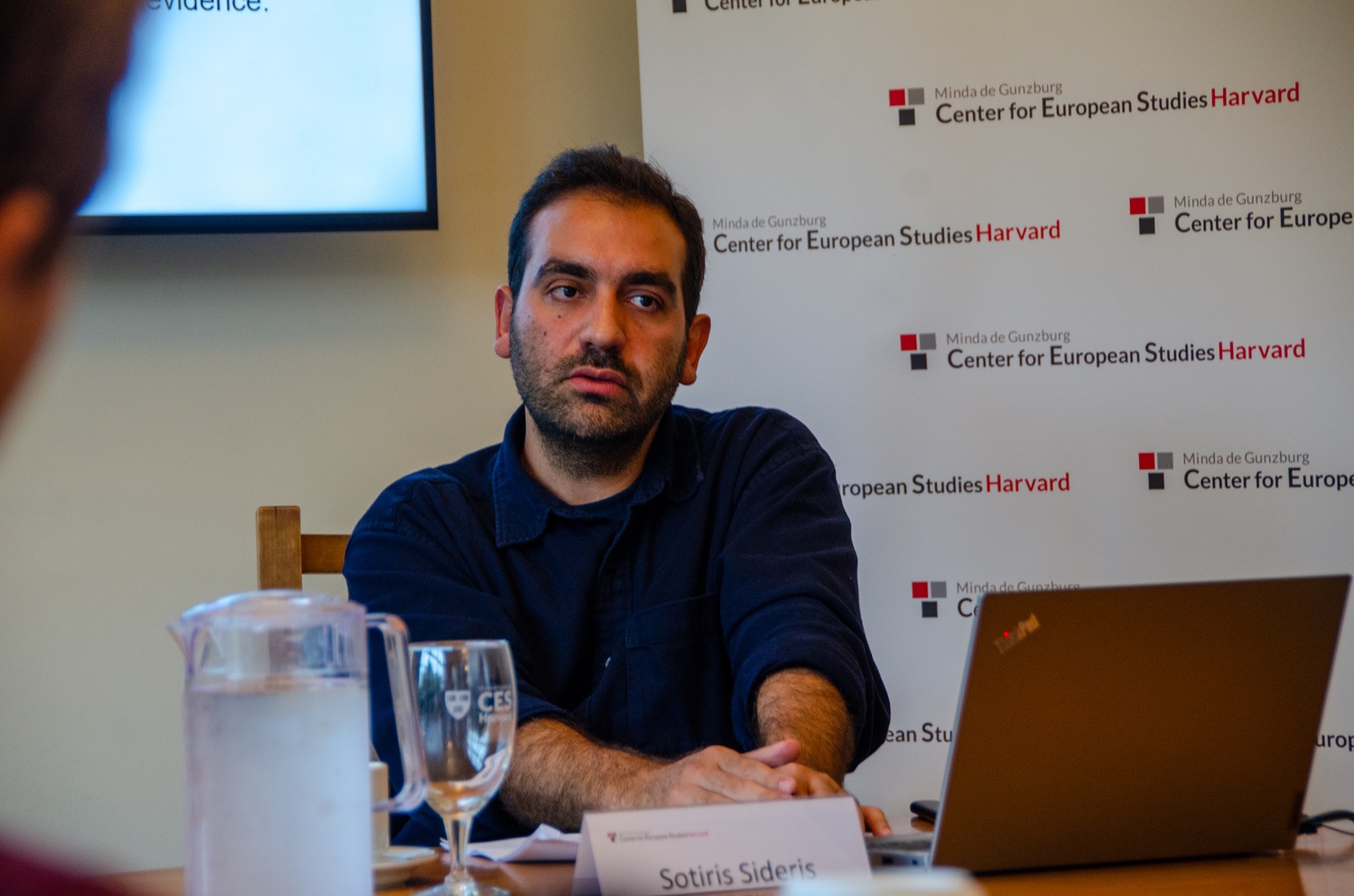
News
Summers Will Not Finish Semester of Teaching as Harvard Investigates Epstein Ties

News
Harvard College Students Report Favoring Divestment from Israel in HUA Survey

News
‘He Should Resign’: Harvard Undergrads Take Hard Line Against Summers Over Epstein Scandal

News
Harvard To Launch New Investigation Into Epstein’s Ties to Summers, Other University Affiliates

News
Harvard Students To Vote on Divestment From Israel in Inaugural HUA Election Survey
Nieman Fellow Sotiris Sideris Stresses Partnership between Human Verification and AI in Data Journalism

Nieman Fellow Sotiris Sideris cautioned against relying on artificial intelligence in journalism during a Tuesday talk at Harvard, stressing the need for human fact-checking as AI use surges.
Sideris, a Greek data journalist, is a current data editor for the Center for Collaborative Investigative Journalism and Reporters United, a news outlet in Greece. He was selected as a fellow by the Nieman Foundation, which funds nearly two dozen professional journalists to audit Harvard classes for a year.
His talk focused on the use of AI to fill in gaps in data analysis. The hour-long lecture was organized as a part of the annual Worldwide Week hosted by the Office of the Vice Provost for International Affairs, which spotlights global research topics across Harvard.
“The question today isn’t whether we are using AI in journalism — because we do it already and we are already past these states — but the question is whether we can do journalism without outsourcing our skepticism, our ethics, and our sense of accountability,” Sideris said.
Sideris recognized a variety of ways AI can make gathering information more efficient, including automating searches and analyzing data trends. He pointed to existing tools by Google, including Pinpoint and NotebookLM — AI-assisted tools that have become popular in data journalism.
But Sideris emphasized the need to check AI outputs throughout his talk, warning that a dependence on AI could result in increased errors without human verification.
“Human verification is something we cannot negotiate,” he said.
Sideris warned of the “power of absence,” where both AI and humans can overlook or intentionally exclude data, making it “invisible.” He underscored the need for journalists to use AI to supplement their work, but avoid trusting it blindly.
“The point here is that absence of data is not neutrality,” he said. “It is a signal, and when data is missing, that’s rarely an accident, at least that’s what we see in the work that we do. A missing data set isn’t just a blank spreadsheet — it is neglect and exclusion of deliberate facts.”
The talk was moderated by Nicolas Prevelakis, associate director for curricular development at the Center for Hellenic Studies. Prevelakis asked how AI could be used for data collection in senior theses, which he advises in the Social Studies department.
“It’s great if you want to use these tools, but don’t try to do a PhD thesis. Don’t try to do everything, start with a small chunk,” Sideris said, adding that there is still benefit in doing data analysis manually.
“When it comes to generating your own data — because it will take time, especially if it’s your first time — it will be painful, but it will pay back,” he added.
Sideris concluded his talk by encouraging full transparency of AI use, especially as its prevalence becomes more common across disciplines.
“When we ask for somebody to be transparent, we cannot ask them without us being transparent in the very, very beginning of the story — about how we are using the tools, about who is funding our work, about any editorial decision that we take along the way,” Sideris said.
The responsibility is on the journalist to accurately document their AI usage, according to Sideris.
“You have to take notes of your steps. You have to be able to trace everything,” Sideris said. “Because the good scenario is a colleague asking you how you ended up with that kind of finding. The bad case scenario is a judge in the courtroom asking you how you ended up with that finding.”
Want to keep up with breaking news? Subscribe to our email newsletter.
